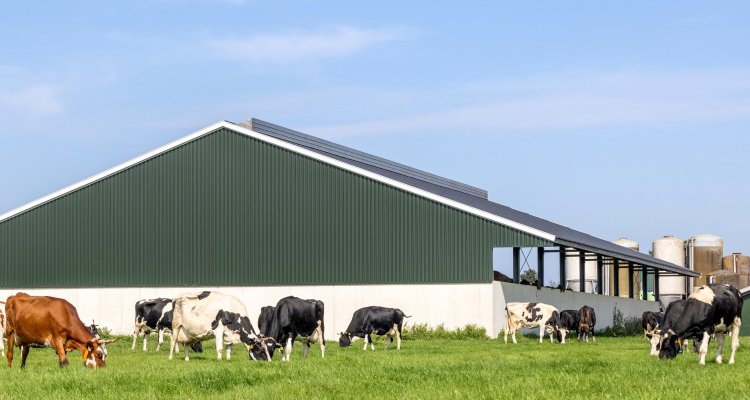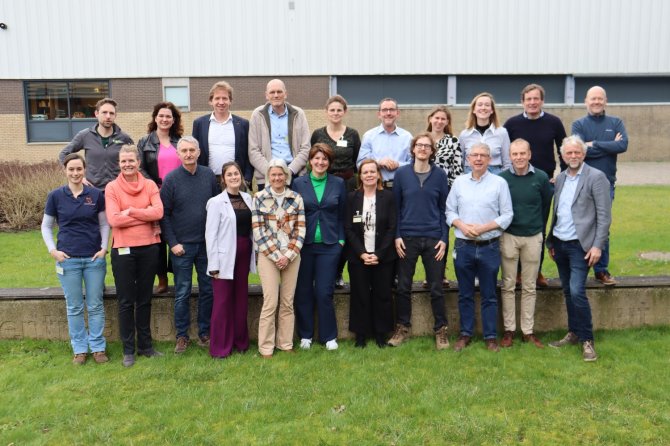
News
Project Wise with Worms: 'First egg has been laid'
As spring has come to a start, it is expected that Dutch cattle will soon be able to go outside again. However, grazing also brings eggs of gastrointestinal worms and liver fluke onto the land. These parasites can threaten the health of cattle. The multi-year project 'Wise with Worms | cattle' is investigating how many of these parasites are present and what courses of action cattle farmers can take.
Members of the steering committee, advisory group and project team of the 'Wise with Worms‘ consortium met in Lelystad on 28 February to discuss opportunities and threats for Dutch dairy farmers related to gastrointestinal worm infections. Chair of the steering group Ria Derks submitted the Wise with Worms project proposal to the Top Sector Agri & Food last year, with a request to co-fund a large research consortium. The aim of the research is to support farmers in their desire to implement sustainable farming practices while combatting gastrointestinal worms and liver fluke.
The project started at the end of last year. The research is made possible thanks to contributions from the Ministry of Agriculture, Nature and Food Quality and private parties, including the provinces of Groningen, Friesland, Overijssel, Zuid-Holland and Utrecht, Zoetis, LTO projects and the central organisation for the meat sector (COV). Researchers from the Faculty of Veterinary Medicine (Utrecht University), the Laboratory of Nematology and Wageningen Bioveterinary Research (both part of Wageningen University & Research), and Royal GD are responsible for carrying out the research.

The project will increasingly provide insight into worm problems in cattle farming in the coming years. In doing so, the focus is also on the effects that more nature-inclusive farming and climate change may have on worm infestations. “The expectation is that worm infections will increase in the future as a result,” says Derks. Through the research project, the partners aim to gain insight into what sustainable courses of action dairy farmers can take in response. “During this consultation, we determined which first steps we will take within the project. We laid that egg proverbially,” says Derks.